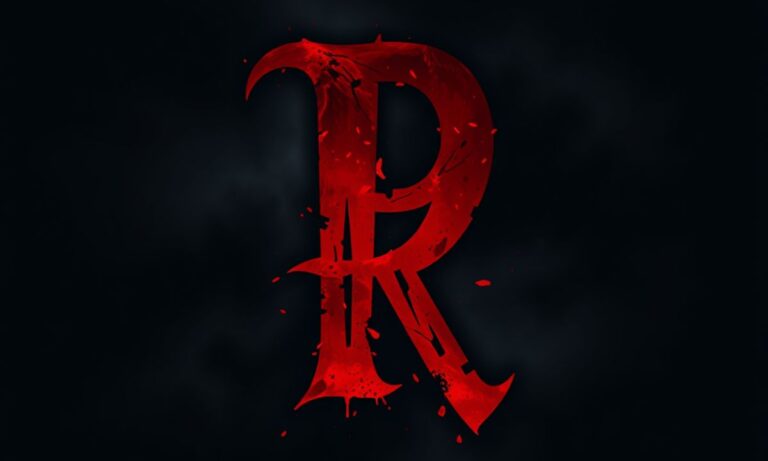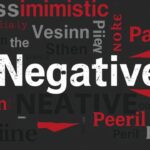The letter R is a powerhouse in the English language, offering an extensive collection of negative words that can enhance your communication.
From common terms like “revolt” and “racism” to obscure ones like “recrudescence” and “rebarbative,” these R-words can add precision and depth to your vocabulary.
Whether you’re writing a report, crafting an essay, or simply looking to express yourself more effectively, these negative R-words provide powerful options for conveying disapproval, criticism, or unpleasant situations.
READMORE: https://fashiongravity.co.uk/words-that-begin-with-the-letter-t/
Revolt, Racism, Repulsive: The Power of Negative R-Words
Negative R-words carry significant weight in our communications, often expressing strong disapproval or disgust.
Words like “revolt” capture resistance and rebellion against established systems, while “racism” identifies prejudice based on race. “Repulsive” expresses extreme disgust or aversion toward something or someone.
These powerful terms can precisely communicate negative situations, feelings, or characteristics in both personal and professional settings.
Using these words appropriately can strengthen your arguments, enhance your descriptive writing, and ensure your message is received with the intended impact and clarity.
Unusual Words That Start With The Letter R
The English language houses many unusual R-words that remain largely unknown yet carry fascinating meanings.
“Recrudescence” describes the unwelcome recurrence of something unpleasant, like a disease reappearing or harmful behavior resurfacing. “Rannygazoo” refers to foolish or deceptive behavior intended to mislead others.
“Radicivorous” describes something that eats roots, while “ragmatical” refers to someone argumentative and quarrelsome. “Ramiform” describes branch-like structures, and “rapprochement” indicates the establishment of cordial relations.
These unusual words can add sophistication to your vocabulary, allowing for more precise expression in specialized contexts.
When strategically employed, they can elevate your communication and demonstrate linguistic versatility.
- Raconteur
- Rapturous
- Rhapsodic
- Rubicund
- Rutilant
- Recondite
- Refulgent
- Racontee
- Ruminant
- Rictus
- Ratiocinate
- Rhabdomancy
- Recumbent
- Rebarbative
- Reticent
- Rococo
- Rumbustious
- Rutilous
- Recalcitrant
- Rapprochement
- Rhadamanthine
- Raconter
- Rhabarbarate
- Raddled
- Rancorous
- Ribald
- Rookery
- Razzmatazz
- Resplendent
- Regolith
- Riposte
- Risible
- Rodomontade
- Rubescent
- Rhizome
- Rutilate
- Requiem
- Ramekin
- Ruminative
- Rutilated
- Retronym
- Rhapsody
- Radiolarian
- Redolent
- Roister
- Ruffian
- Ragamuffin
- Revelry
- Rara avis
- Razzle-dazzle
- Reticulate
- Rameous
- Rhubarb (as a slang word)
- Rindle
- Rixatrix
- Roquelaure
- Rumpus
- Rotunda
- Rubricate
- Rhapsodize
- Ruttish
- Rorqual
- Rosinante
- Requital
- Replevin
- Raddle
- Rabble-rouser
- Rascallion
- Rallentando
- Rhotic
- Remonstrate
- Repine
- Reveille
- Rutilance
- Rubefacient
- Remora
- Recrudescence
- Rheophile
- Ruminatively
- Razzmatazzy
Negative Adverbs That Start With R
Negative R-adverbs enhance descriptions by providing more information about how actions are performed negatively. “Recklessly” describes actions done with careless disregard for consequences, as when someone drives recklessly through a residential neighborhood.
“Rowdily” indicates noisy, rough behavior, like children playing rowdily in a quiet library. “Restlessly” suggests an inability to remain calm or still, as when someone restlessly paces while awaiting important news.
“Reluctantly” shows unwillingness or hesitation, while “raucously” describes something excessively loud and disorderly.
These adverbs add specificity and clarity to your descriptions of negative actions or states.
By incorporating these precise adverbs, your writing becomes more vivid and your meaning more exactly conveyed.
- Rarely
- Reluctantly
- Resentfully
- Reproachfully
- Recklessly
- Rudely
- Remorselessly
- Ruthlessly
- Resignedly
- Resentingly
- Reluctively
- Rigidly
- Rebelliously
- Reprehensibly
- Revoltingly
- Regressively
- Repressively
- Recriminatingly
- Rantingly
- Rabidly
- Raucously
- Reprovingly
- Repulsively
- Rancorously
- Rattlingly
- Repellently
- Reversely
- Retroactively
- Retrospectively
- Regretfully
- Redundantly
- Repentantly
- Roughly
- Rigid-heartedly
- Repeatedly (in a nagging/negative sense)
- Restlessly
- Revoltfully
- Ruinously
- Relapsingly
- Resoundingly (in a harsh sense)
- Reactively
- Rejectingly
- Recoilingly
- Red-facedly (angrily)
- Refusingly
- Recurrently
- Remissly
- Reprehendingly
- Ragingly
- Rantishly
- Resentfully
- Retaliatorily
- Repugnantly
- Repressingly
- Requitingly
- Reckonlessly
- Remorsefully
- Reprovably
- Recurringly
- Revengingly
- Rebarbatively
- Repellingly
- Requiemly (figuratively, as in somberly)
- Roaringly (in a destructive sense)
- Rebukingly
- Revoltingly
- Rashly
- Revulsively
- Rebelliously
- Rancidly
Obscure R Words
Obscure R-words offer hidden treasures for those seeking to expand their vocabulary with precise negative terms. “Rancor” describes a festering bitterness or deep-seated resentment that persists over time, often poisoning relationships.
“Recalcitrant” identifies someone stubbornly uncooperative and resistant to guidance or authority. “Recidivism” refers to the tendency to relapse into previous criminal behavior.
“Ravenous” indicates extreme hunger that drives desperate behavior. “Raconteur” describes someone who tells stories in a particularly skilled but potentially manipulative way.
These obscure words allow for nuanced expression of complex negative concepts.
When appropriately used, they can elevate your communication from mundane to sophisticated, particularly in academic, literary, or professional contexts.
- Rhabdomancy
- Rorqual
- Rixatrix
- Ruddle
- Rubefacient
- Ramentum
- Rhizoid
- Rhamphotheca
- Razzmatazzy
- Reboation
- Retiform
- Ramentaceous
- Ratoon
- Rhabdology
- Ruddleman
- Rutilant
- Retromingent
- Rhabdite
- Rubiginous
- Rhabdoid
- Recrement
- Razzia
- Recrementitious
- Raptorial
- Rhathymia
- Rhamnose
- Rejuvenesce
- Raucity
- Refluent
- Rubrical
- Rixation
- Rupicolous
- Runcinate
- Raptus
- Rugose
- Rupestral
- Recumbency
- Rhabdocoel
- Raptivity
- Rechabite
- Rameous
- Rapturize
- Rhizomatous
- Rhizophagous
- Rubefy
- Rubeola
- Ruminantial
- Raptorially
- Reticulocyte
- Rictal
- Rhachis
- Ruminative
- Rachidian
- Rubricality
- Reticulum
- Rechless
- Rodomontist
- Ruffianly
- Retund
- Rubiconed
- Retundity
- Rhabarbarine
- Reboantic
- Remanency
- Retroact
- Rhabdom
- Rhotacism
- Ruddiness
- Rutilance
- Repleviable
- Radiesthesia
- Retromorph
- Rythmopoeia
- Rubricist
- Rachiform
- Roturier
- Requisitely
- Ramekinhood
- Rapturously
- Reacclimatize
Negative Adjectives That Start With R
Negative R-adjectives provide powerful descriptors for unpleasant people, places, and situations. “Repressive” describes systems or individuals that restrict freedom or expression, such as repressive government policies that limit civil liberties.
“Revolting” indicates something that causes extreme disgust or revulsion, whether physically or morally. “Rancid” describes food that has spoiled and developed an unpleasant smell or taste, but can also metaphorically describe ideas or attitudes that have similarly “gone bad.” “Ruthless” characterizes someone showing no compassion or mercy in pursuit of their goals.
“Radioactive” describes dangerous material emitting radiation but can metaphorically indicate toxic situations.
These adjectives add precision and impact to your descriptions, allowing you to convey exactly how negative something is.
- Rude
- Rotten
- Rebellious
- Reckless
- Repugnant
- Rancid
- Rigid
- Ruthless
- Reprehensible
- Recalcitrant
- Resentful
- Repulsive
- Rowdy
- Rabid
- Raging
- Regressive
- Redundant
- Resigned
- Rough
- Ranting
- Ragged
- Rash
- Rattling
- Rancorous
- Revolting
- Rotten-hearted
- Remorseless
- Ruinous
- Raving
- Riled
- Ragamuffin-like
- Reproachful
- Repetitive
- Raggedy
- Rigid-minded
- Revoltingly-sweet
- Rude-mannered
- Repellant
- Regressive-minded
- Ridiculing
- Rascally
- Reproving
- Regretful
- Ruffled
- Rusty
Negative Words That Start With R To Describe A Person
When describing difficult people, specific R-words can capture their negative traits precisely. “Rebarbative” describes someone so irritating and unpleasant that others actively avoid them.
“Retrogressive” identifies a person who moves backward rather than forward, often clinging to outdated or harmful ideas. “Ruffianly” describes someone behaving like a violent, brutal thug. “Recalcitrant” indicates stubborn uncooperativeness despite repeated attempts at correction.
“Rigid” describes someone inflexible in thinking or behavior, unable to adapt to new situations. “Rash” characterizes someone who acts impulsively without considering consequences.
These descriptive terms allow for specificity when discussing challenging personalities.
By selecting the precise negative descriptor, you can communicate exactly what makes someone difficult without resorting to vague generalities.
- Rude
- Ruthless
- Reckless
- Rebellious
- Resentful
- Rigid
- Rowdy
- Rancorous
- Repugnant
- Recalcitrant
- Rotten
- Remorseless
- Rabid
- Reprehensible
- Raging
- Repulsive
- Reluctant
- Reticent (in a negative/lightly critical sense)
- Raving
- Rude-mouthed
- Ranting
- Rascally
- Regressive
- Riled
- Repetitive
- Reproachful
- Rash
- Rotten-hearted
- Reprimanding
- Reproving
- Reclusive (in a negative social context)
- Rude-tempered
- Resigned (in a defeatist sense)
- Ranty
- Roaring (in an aggressive way)
- Riled-up
- Redundant (when describing someone’s contributions)
- Rough
- Ridiculing
- Rebuffing
Negative Feelings And Emotions Starting With R
Negative R-emotions represent psychological states that cause discomfort or distress. “Resentment” describes persistent anger or bitterness toward someone who has done wrong, often festering beneath the surface.
“Remorse” indicates deep regret for wrongdoing, accompanied by a desire to make amends. “Repugnance” signifies strong aversion or disgust toward something morally offensive. “Rancor” represents long-lasting, intense hostility that resists resolution.
“Reticence” indicates unwillingness to speak openly, often due to fear or distrust. “Reproachfulness” describes a tendency to express disappointment and disapproval toward others.
Understanding these emotions helps us recognize and process our negative feelings.
By naming these emotions precisely, we gain better control over them and can communicate our internal states more effectively.
- Rage
- Resentment
- Regret
- Remorse
- Rejection
- Revulsion
- Repulsion
- Restlessness
- Resignation (in a defeated sense)
- Rancor
- Revenge
- Resentfulness
- Remorsefulness
- Ruthlessness (when turned inward or suffered)
- Rigidness
- Reproach
- Reproachfulness
- Rudeness (emotional reaction or experience)
- Resistance (emotional)
- Rebelliousness
- Repentance (with shame)
- Reclusiveness
- Rattled
- Reluctance
- Ragefulness
- Resentfully withdrawn
- Restiveness
- Recklessness (emotional root)
- Resentful anger
- Recoil
- Repressive frustration
- Reckoning fear
- Rankling
- Revengfulness
- Rejected
- Regretfulness
- Resignation (loss of hope)
- Rage-induced anxiety
- Repugnance
- Rawness (emotional)
- Ruinous guilt
- Remorselessness
- Reticence (painful kind)
- Rebellious rage
- Reactive fear
- Reproving anger
- Rootless sadness
- Ruminating guilt
- Resurfaced trauma
- Rebound bitterness
- Ravaged (emotionally)
- Reckless despair
- Regret-ridden
- Reclusive sadness
- Resentful blame
- Rapid anxiety
- Rigid emotional stance
- Ruined expectations
- Rageful helplessness
- Retreating fear
- Repercussion anxiety
- Repetitive regret
- Risk-induced stress
- Rigid fear
- Raging sorrow
- Recoiling sadness
- Recriminating thoughts
- Repressed emotions
- Resentful fatigue
- Reckless frustration
- Recoiled trust
- Reactionary hurt
- Relapsed grief
- Reduced self-worth
- Ruined self-esteem
- Retreating anger
- Resigned hurt
- Reckoning sadness
- Ravaging insecurity
- Ragged emotions
Negative Communication Words Not To Use That Begin With R
Certain R-words can damage communication and relationships when used carelessly. “Recrimination” describes the harmful cycle of responding to accusations with counter-accusations, which escalates conflicts rather than resolving them.
“Reneging” indicates going back on promises or commitments, which destroys trust in relationships. “Ridiculing” means mockingly belittling others, which damages their confidence and creates hostility. “Rebuffing” describes rejecting someone’s advances or ideas harshly, which can cause unnecessary hurt.
Ranting” indicates speaking at length in an angry, high-energy way without listening to others.
These communication patterns should be avoided in productive conversations. Instead of these harmful approaches, focus on respectful dialogue that prioritizes understanding and resolution rather than winning or hurting others.
- Rant
- Rude
- Ridicule
- Rebuke
- Reproach
- Reject
- Retaliate
- Rave (angrily)
- Revile
- Ranting
- Raving
- Rudeness
- Reprimand
- Resent
- Resentment
- Retort (harshly)
- Rumor
- Reproving
- Rebuking
- Resisting
- Refuse (dismissively)
- Rigid (in tone)
- Riling
- Revoke (as a threat)
- Ranty
- Recrimination
- Reticence (in withholding)
- Raucous
- Rambling (incoherent or aggressive)
- Regressive
- Rant-filled
- Rebut (aggressively)
- Rhetorical (when manipulative)
- Rancorous
- Ridiculing
- Refutation (hostile)
- Roar (as in shouting)
- Rebelling (verbally)
- Refutal (when harsh)
- Reactionary (extreme)
- Rebuff
- Reluctant (uncooperative)
- Redundant (as criticism)
- Retorting
- Repeating (nagging)
- Raising voice
- Reproachfully
- Rudeness-laced
- Rejecting tone
- Reiterating (aggressively)
Depressed Words That Start With R
Words beginning with R can capture the experience of depression and emotional struggles. “Remorse” describes overwhelming guilt about past actions that can contribute to depressive episodes.
“Resignation” indicates giving up hope and accepting negative circumstances as unchangeable.
“Retreat” describes withdrawal from social connections, a common symptom of depression. “Rumination” indicates obsessive, cyclical negative thinking patterns that maintain depressive states.
“Reticence” describes reluctance to communicate openly about emotional pain, often worsening isolation. “Rejection” captures the painful experience of being unwanted or dismissed.
Recognizing these aspects of depression through precise language can help in addressing mental health challenges.
By naming these experiences specifically, those suffering can better communicate their needs and mental health professionals can more accurately understand their patients’ conditions.
- Regret
- Remorse
- Resentment
- Rejection
- Resignation
- Ruin
- Restlessness
- Reproach
- Recoil
- Reticence
- Reluctance
- Retreat
- Ruminating
- Ruminative
- Remorseful
- Resentful
- Repressed
- Repression
- Ruefulness
- Requiem
- Rigid (emotionally)
- Ravaged
- Rusted (symbolic of stagnation)
- Redundant (as in worthless)
- Rankled
- Resurfaced (trauma)
- Ruined
- Ripped (emotionally)
- Rattled
- Ragged (emotionally)
- Rainy (symbolically)
- Ruminant (dwelling on thoughts)
- Regretful
- Retreating
- Resigned
- Recoiling
- Rundown
- Rejected
- Ravaged
- Regression
- Regressed
- Ruinous
- Refused (love, help)
- Repeating (negative cycles)
- Reclusive
- Recurring (pain)
- Repetition (in despair)
- Regression
- Ruminated
- Reproaching
- Ripped-apart
- Resentfulness
- Retreated
- Restive
- Remorsefulness
- Rock-bottom
- Rain-soaked (metaphoric)
- Revolving (thoughts)
- Remote (emotionally)
- Retreated
- Repercussion
- Rundown
- Reopened (wounds)
- Rigid-hearted
- Rejected-feelings
- Reeling
- Resent-laced
- Refusing-hope
- Regret-heavy
- Repetitive-thoughts
- Repetitious
- Reproach-filled
- Recidivism (back into sadness)
- Repressed-emotions
- Reality-bound
- Refrained (from joy)
- Recoiled
- Ruptured
- Rubble (emotional)
- Rough-edged
- Rocked (by pain)
- Ravaging-thoughts
- Restless-nights
- Robbed (of joy)
- Reproached-self
- Regret-soaked
- Remorse-ridden
- Retreating-mind
- Removed (emotionally)
- Rootless
Halloween Words That Start With R
The letter R provides excellent vocabulary for creating eerie Halloween atmospheres and descriptions. “Redrum” (murder spelled backward) became an iconic horror term through Stephen King’s “The Shining,” representing the chilling revelation of murderous intent.
“Revenant” describes a corpse that has returned from the grave, adding supernatural dread to Halloween stories.
“Raven” evokes Edgar Allan Poe’s famous poem and the bird’s association with death and misfortune. “Rattle” describes the sound of bones or chains, common in ghost stories. “Rot” captures the decomposition associated with death and decay. “Ritual” suggests arcane ceremonies that might summon supernatural entities.
These terms enhance the creation of spooky Halloween content. By incorporating these words, writers and storytellers can build more immersive and frightening narratives.
- Raven
- Ritual
- Restless
- Rattle
- Reaper
- Rotten
- Rune
- Ruins
- Robe (witch/warlock)
- Rattling
- Revenant
- Rot
- Ravaged
- Rusty
- Rancid
- Realm (dark/ghostly)
- Rune-marked
- Ripper
- Rumble
- Roar
- Rasp
- Root (as in cursed root)
- Rancor
- Reek
- Rigor (as in rigor mortis)
- Resurrected
- Roaming
- Roost (bat’s roost)
- Riddle (creepy or cursed)
- Red-eyed
- Reckoning
- Revenant-like
- Ritualistic
- Ragged
- Restless-spirit
- Reanimated
- Rasping-voice
- Rattlesnake (spooky theme)
- Reaper’s-scythe
- Ravish (dark, eerie sense)
- Rift (dimensional or haunted)
- Rumble-of-thunder
- Roiling (fog or mist)
- Rustling-leaves
- Rocking-chair (creaking, haunted vibe)
- Red-moon
- Runic
- Robber (masked figure)
- Rag-doll (creepy)
- Raven-call
- Reeking
- Red-candle
- Rest-in-peace
- Ritual-circle
- Rotten-jack-o’-lantern
- Ripped-costume
- Red-ribbon (ghost lore)
- Roaming-ghost
- Razor (scary object)
- Restless-dead
- Roach (creepy crawler)
- Rattling-chains
- Rotten-teeth
- Reaper’s-lair
- Roar-of-the-undead
Funny Words That Begin With R
Despite their negative connotations, some R-words carry humor in their sound or meaning. “Rattletrap” humorously describes an old, decrepit vehicle that’s barely functioning but somehow still runs.
“Ragamuffin” refers to a disheveled, dirty child in a comically disapproving way. “Rapscallion” is an old-fashioned term for a mischievous person, carrying a sense of playful wrongdoing rather than serious malice. “Razzle-dazzle” describes flashy but superficial showmanship designed to distract from substance.
“Rigmarole” refers to a complicated, confusing procedure, often unnecessarily complex. “Rumbustious” describes boisterously energetic behavior that’s entertaining but potentially disruptive.
These words add lighthearted color to descriptions of negative situations.
They allow us to acknowledge problems while maintaining a sense of humor and perspective about life’s challenges.
- Rambunctious
- Razzmatazz
- Roly-poly
- Ruckus
- Ridonkulous
- Riffraff
- Razzle-dazzle
- Rigmarole
- Rumpus
- Ragamuffin
- Roisterer
- Ragtag
- Roquefort (cheese)
- Riffle
- Roar
- Rocketry (when not related to actual science)
- Reboant
- Rambler
- Reptilian (as in “weirdly reptilian”)
- Roam
- Rumble (as in “make a rumble”)
- Rockabye
- Roodle (as in “a noodle”)
- Rascally
- Rebootee
- Rowdy
- Rowboat
- Ring-a-ding
- Rubble
- Ruffle
- Roquefort
- Rapscallion
- Rustle
- Ringo
- Rolly-polly
- Rigged
- Rascal
- Resplendent (when used in an over-the-top way)
- Riptide
- Rubicon (when used in everyday conversation)
More Words That Begin With The Letter R
The wealth of negative R-words extends far beyond the most common terms. “Recoil” describes physically drawing back in disgust or fear. “Reactionary” indicates someone opposed to progress or change, often clinging to outdated ideas.
“Reductionist” describes oversimplifying complex concepts in a way that loses important nuance. “Rawboned” indicates someone gaunt or emaciated in appearance.
“Recombinant” describes something formed by combining different elements, often with unpredictable results. “Recessionary” relates to economic decline and its negative effects. “Reefy” describes something resembling a reef, potentially dangerous to navigation. “Rallentando” indicates gradually slowing down in music, potentially creating tension.
These additional terms demonstrate the remarkable versatility of R-words in English.
Their specific applications across different contexts show how English vocabulary allows for precise negative expression.
- Rabbit
- Radiant
- Radical
- Radio
- Rage
- Rail
- Rain
- Raise
- Rally
- Ramble
- Ramp
- Random
- Range
- Rank
- Rapid
- Rare
- Raspberry
- Rat
- Rate
- Ratio
- Rational
- Rattle
- Ravage
- Reach
- React
- Real
- Reason
- Rebel
- Reboot
- Recall
- Recent
- Recipe
- Reckon
- Reclaim
- Recognize
- Recreate
- Recover
- Recruit
- Red
- Reduce
- Refer
- Reflect
- Reform
- Refuse
- Region
- Relate
- Relax
- Release
- Relent
- Relish
- Remark
- Remedy
- Remove
- Render
- Renew
- Repair
- Repeat
- Replace
- Report
- Rescue
- Reside
- Resolve
- Resort
- Respect
- Respond
- Rest
- Restore
- Result
- Retain
- Retreat
- Return
- Reveal
- Revive
- Reward
- Rhythm
- Rival
- Road
- Roar
- Roam
- Rock
- Roll
- Roof
- Room
- Root
- Rope
- Rose
- Rough
- Round
- Route
- Row
- Royal
- Rub
- Rubbish
- Rude
- Rug
- Ruin
- Ruler
- Rumor
- Run
- Rush
- Rust
- Rattle
- Reign
- Rebel
- Regulate
- Resonate
- Reformist
- Rationalize
- Recap
- Residue
- Revocation
- Resilience
- Redemption
- Recession
- Repercussion
- Reticent
- Repertoire
- Reincarnate
- Recline
- Resilient
- Radiate
- Recycle
- Ridicule
- Reachable
- Rigorous
- Reckless
- Revealable
- Responsive
- Reproach
- Reiterate
FAQ’s
Are negative words that start with R always offensive or derogatory?
No, negative R-words vary widely in intensity and context appropriateness. While words like “racist” or “repulsive” carry strong negative connotations, others like “reluctant” or “regretful” simply describe milder negative states without being offensive.
Can negative words that start with R be used constructively?
Yes, negative R-words can provide constructive feedback when used thoughtfully to identify specific issues that need addressing, rather than attacking someone’s character. The key is focusing on behaviors rather than identity.
Are there alternative words that start with R with more positive connotations?
Absolutely! For every negative R-word, positive alternatives exist, such as “resilient” instead of “resistant,” “resourceful” instead of “ruthless,” and “respectful” instead of “rude.”
How can I use negative R-words responsibly in my writing?
Use negative R-words precisely, ensure they match the severity of what you’re describing, consider your audience’s reaction, and balance criticism with constructive suggestions for improvement.
Why are there so many negative words beginning with R in English?
The prominence of negative R-words likely stems from linguistic evolution, including borrowed terms from Latin and French where “re-” often indicates opposition or reversal, contributing to English’s rich vocabulary of precisely negative terms.
Conclusion
The letter R offers an impressive array of negative words that can enhance your vocabulary and communication precision.
From common terms like “rude” and “rough” to sophisticated ones like “recalcitrant” and “rebarbative,” these words provide nuanced ways to express disapproval, criticism, or unpleasant situations.
By familiarizing yourself with these negative R-words, you can choose the exact term needed to convey your meaning in any context.
Understanding and appropriately using negative R-words demonstrates linguistic sophistication and communication skill.
Whether you’re writing professionally, academically, or creatively, these words allow you to express negative concepts with clarity and impact.
Remember that the power of these words comes with responsibility—use them thoughtfully, precisely, and with awareness of their effect on your audience.
With this extensive collection at your disposal, you’re now better equipped to navigate the full spectrum of human experience in your communication.

I’m Irfan, an experienced SEO content and SEO specialist with 2 years of expertise, currently contributing to Al Jazeera News Website.





